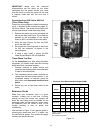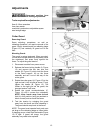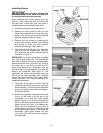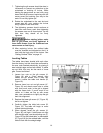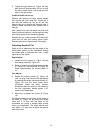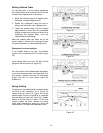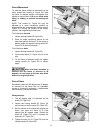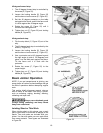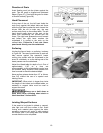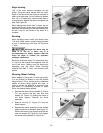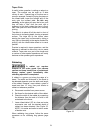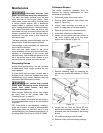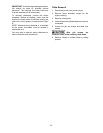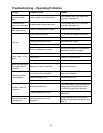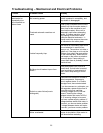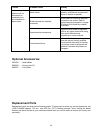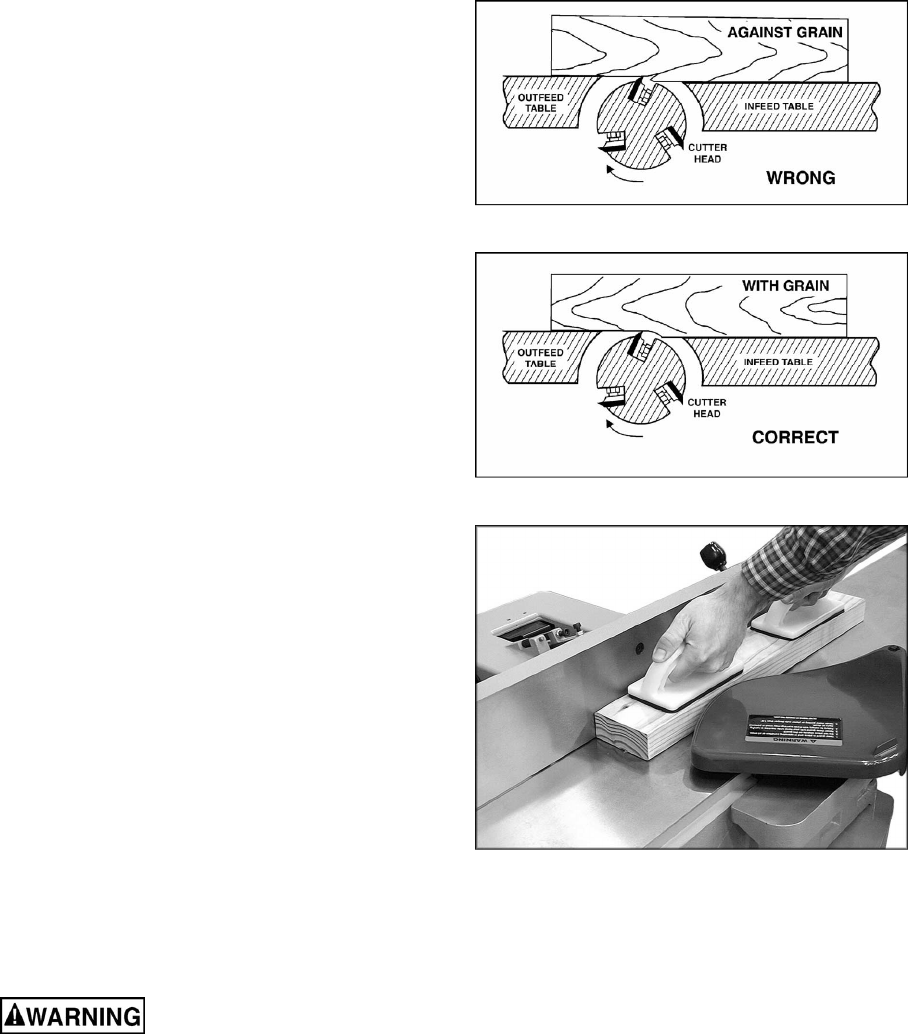
19
Direction of Grain
Avoid feeding work into the jointer against the
grain. This will result in chipped and splintered
edges (Figure 27). Feed with the grain to obtain
a smooth surface (Figure 28).
Hand Placement
At the start of the cut, the left hand holds the
work firmly against the infeed table and fence
while the right hand pushes the work toward the
knives. After the cut is under way, the new
surface rests firmly on the outfeed table. The left
hand should press down on this part, at the
same time maintaining flat contact with the
fence. The right hand presses the work forward
and before the right hand reaches the
cutterhead it is moved to the work on the
outfeed table. Follow the 3 inch rule. Never
pass hands directly over the cutterhead.
Surfacing
Jointing the face of stock, or surfacing, is shown
in Figure 29. The use of push blocks or pads will
help ensure against the operator's hands
coming into contact with the cutterhead in the
event of a kickback, or as the trailing end of the
board passes over the cutterhead.
Adjust the infeed table for depth of cut. Cuts of
approximately 1/16" at a time are
recommended, as this allows better control over
the material being surfaced. More passes can
then be made to reach the desired depth.
Never surface pieces shorter than 12" or thinner
than 3/8" without the use of a special work
holding fixture.
IMPORTANT: When stock is longer than twice
the length of the infeed and outfeed tables, an
assistant or support table must be used to
support the stock.
Always use a hold down or
push block when surfacing short stock or
stock less than 3 inches thick.
Jointing Warped Surfaces
If the wood to be jointed is dished or warped,
take light cuts until the surface is flat. Avoid
forcing such material down against the table;
excessive pressure will spring it while passing
the knives, and it will spring back and remain
curved after the cut is completed.
Figure 27
Figure 28
Figure 29



